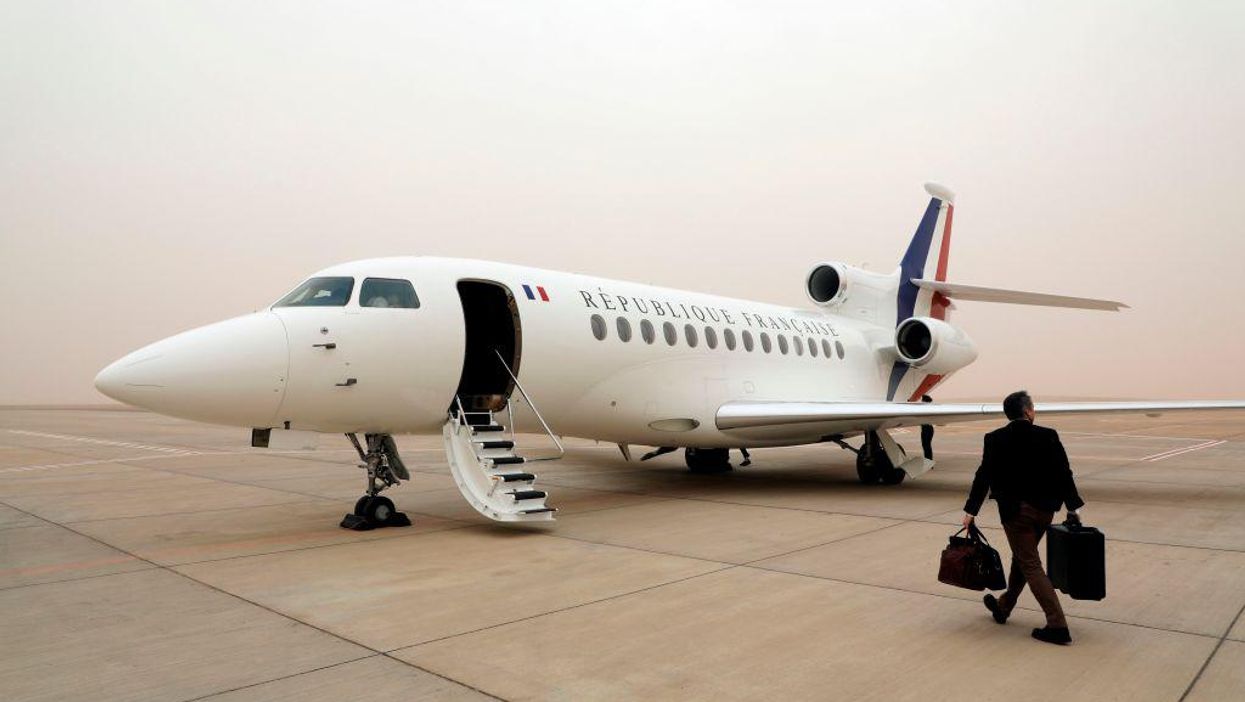
LUDOVIC MARIN/AFP via Getty Images

The European Union (EU) is currently working on a plan to impose an EU-wide minimum tax rate on fuels necessary for aviation in the pursuit of combating climate change. However, the proposed tax policy has special carve-outs for luxury private jets.
The Irish Times reported that executive jets would escape plans to tax polluting aviation fuels according to the draft proposal that was presented by the European Commission.
Reportedly, the European Commission plans to strictly enforce a new minimum tax rate on “aviation fuels, as it seeks to meet more ambitious targets to fight climate change.” Historically, aviation fuels have largely avoided EU fuel taxes.
The proposed tax policy states that the practice of not taxing aviation fuels equivalently to fuels needed for ground and sea transportation “is not coherent with the present climate challenges and policies.” The proposal added that the EU tax rules currently promote the use and consumption of fossil fuels over green energy sources and that they ought to be rewritten to support the EU’s aggressive approach to transitioning Western nations to carbon neutrality.
From 2023 onward, the minimum tax rate for aviation fuel in the EU would start at zero and gradually increase over a 10-year period until the total rate is imposed. The draft tax proposal did not specify what the final rate would be.
Interestingly, however, the minimum EU tax rate would not apply to cargo-only, which are often required for the import and export of goods, or to “pleasure flights” and “business aviation,” which are terms largely used when referring to executive and private jets.
Business aviation in Europe had already climbed above the levels reached in 2019, just before intense travel restrictions were implemented across Europe in response to the COVID-19 pandemic.
During the first six months of 2021, global business aviation activity fell only 4% short of the first half of 2019 and registered a 42% increase from the first half of 2020.
Travel by executive jet accounts for just under 19% of all aviation, while air traffic from cargo planes accounts for less than 5%.
Implementing additional taxes on fossil fuels poses significant political problems as EU member states are experiencing difficulty attempting to implement a trade embargo on Russian-produced oil products.
RedState, a conservative political blog, noted that the EU’s mad-dash to implement a green energy agenda likely wouldn’t have a considerable impact on reducing the global carbon output so long as countries like China and India continue to implement aggressive industrialization policies.